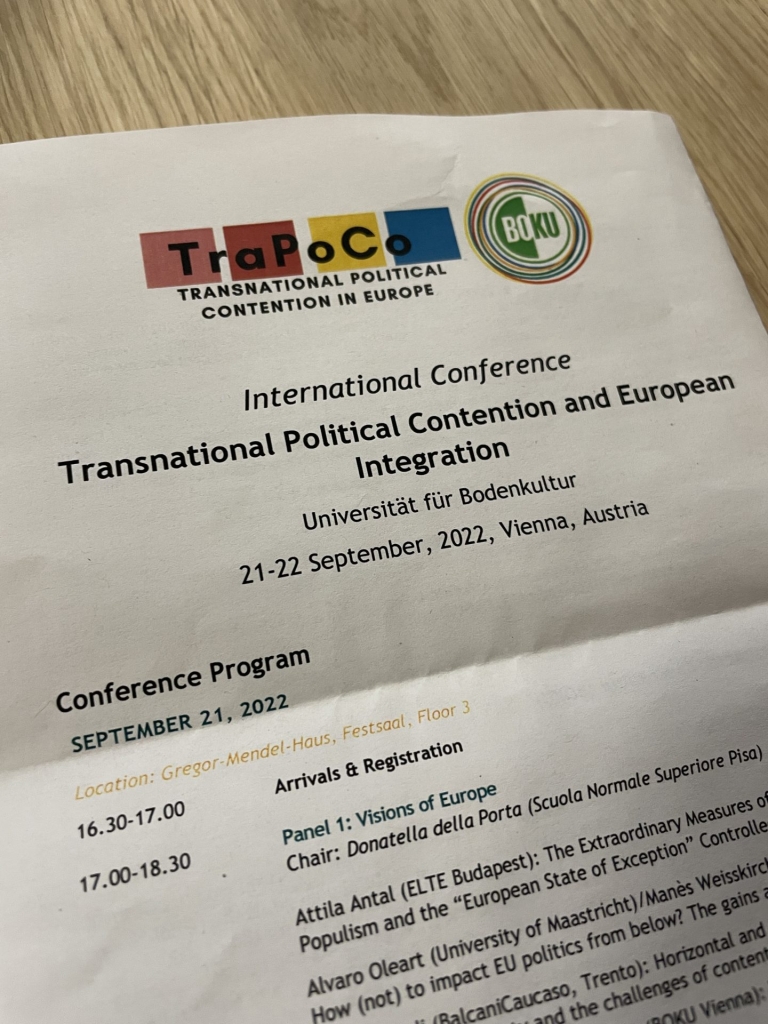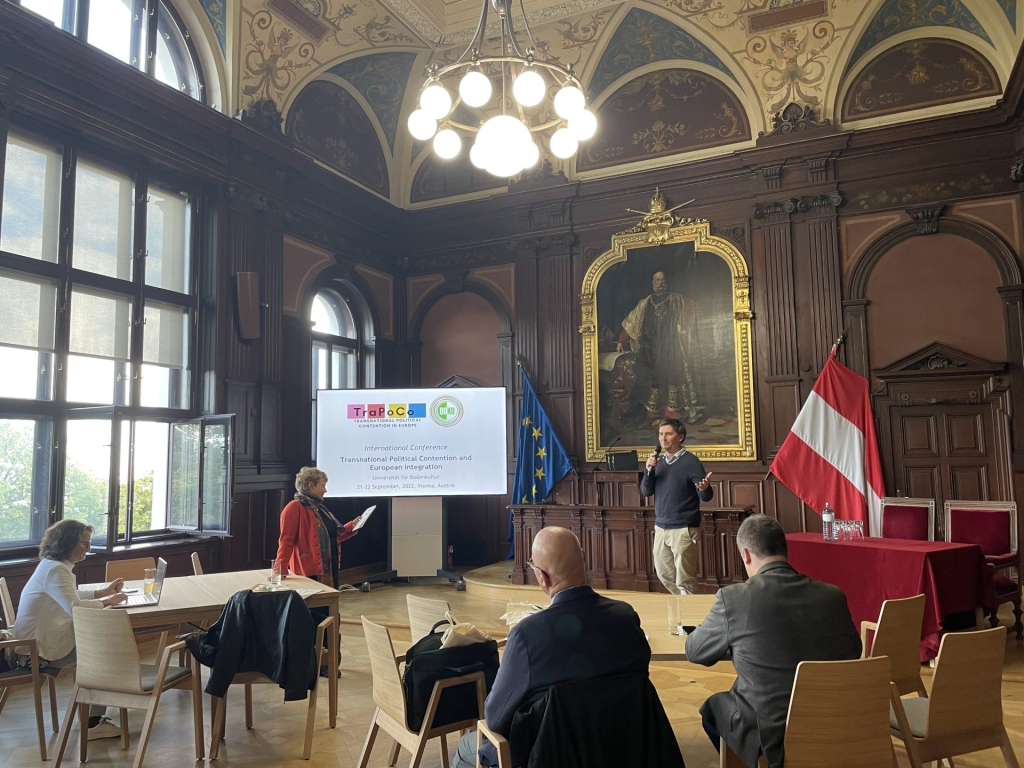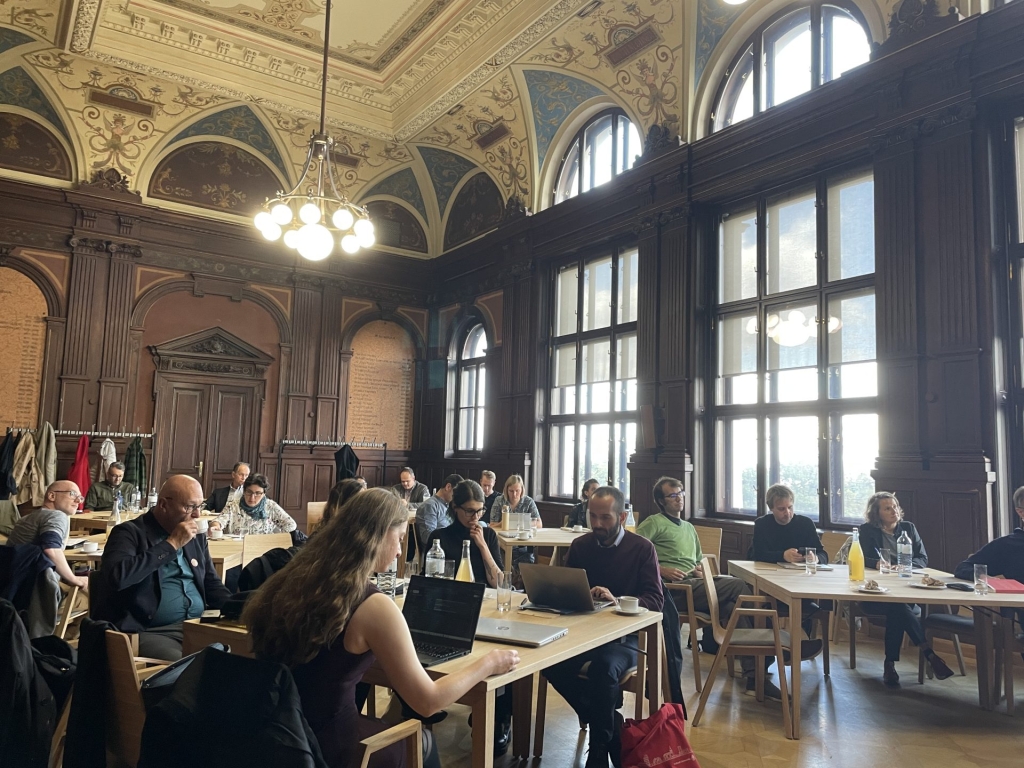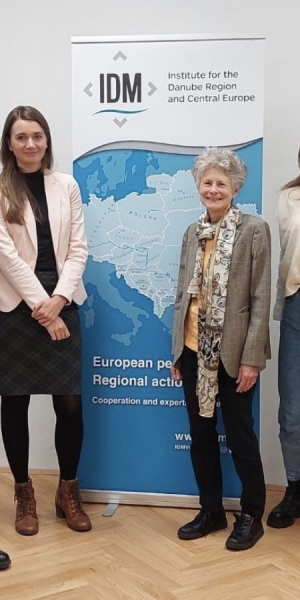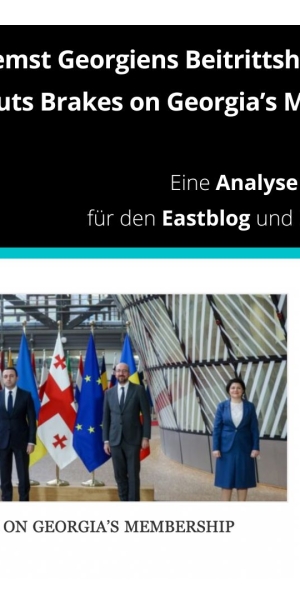Transnational Political Contention and European Integration: Conference at the BOKU
Perhaps not a single paper has been written on social movements in the past decade which did not quote the work of Donatella della Porta. The professor and dean of the Faculty of Political and Social Sciences at the Scuola Normale Superiore (IT) is one of the most-cited researchers dealing with protest movements in various formations and countries. In September, della Porta was hosted at the University of Natural Resources and Life Sciences in Vienna to speak about “paths of transnationalization in social movement” at the international conference “Transnational Political Contention and European Integration” (21-22 September 2022).
The conference was part of the TraPoCo project organized as part of a three-year project coordinated by della Porta and carried out under the „Jean Monnet Network“ action of the Erasmus Plus programme. It “aims to promote knowledge, innovate teaching activities, and foster dialogue between the academia and civil society on studies relating to European integration”.
As a researcher focusing on the transnationalization of environmental movements, Daniela Apaydin (IDM) was invited to chair the panel titled “Narrating Europe from the margins” featuring papers from Jelisaveta Petrović and Jelena Pesić (University of Belgrade), Nikos Papkostas (University of the Peleponnese and Inter alia), Nicolas Moll (Independent researcher) and Laura Luciani (Ghent University). The conference programme strived topics such as autohoritarian challenges, migration, labour struggles and questions of solidarity. The participants of Apaydin’s panel mainly focused on successes and failures of past and present social movements on the Western Balkans and in the South Caucasus.
Despite the heterogeneity of case studies, they share certain experiences of civil society ostracism based on their position in the margins of Europe. A study on extractivism in Serbia shed light on contested questions of ownership and sovereignty in times of neoliberalism and globalization that should receive more attention by international civil society actors, decision-makers and academia. The conference also made aware of the need to investigate legacies of unresolved imperialist exploitations and tendencies of eco-nationalism as well as its cross-border implications.

